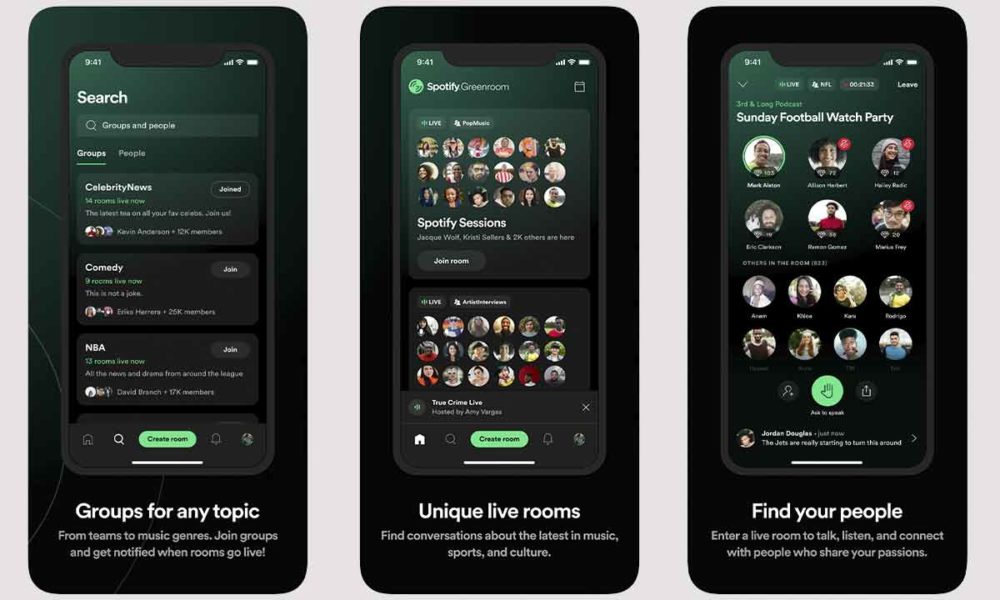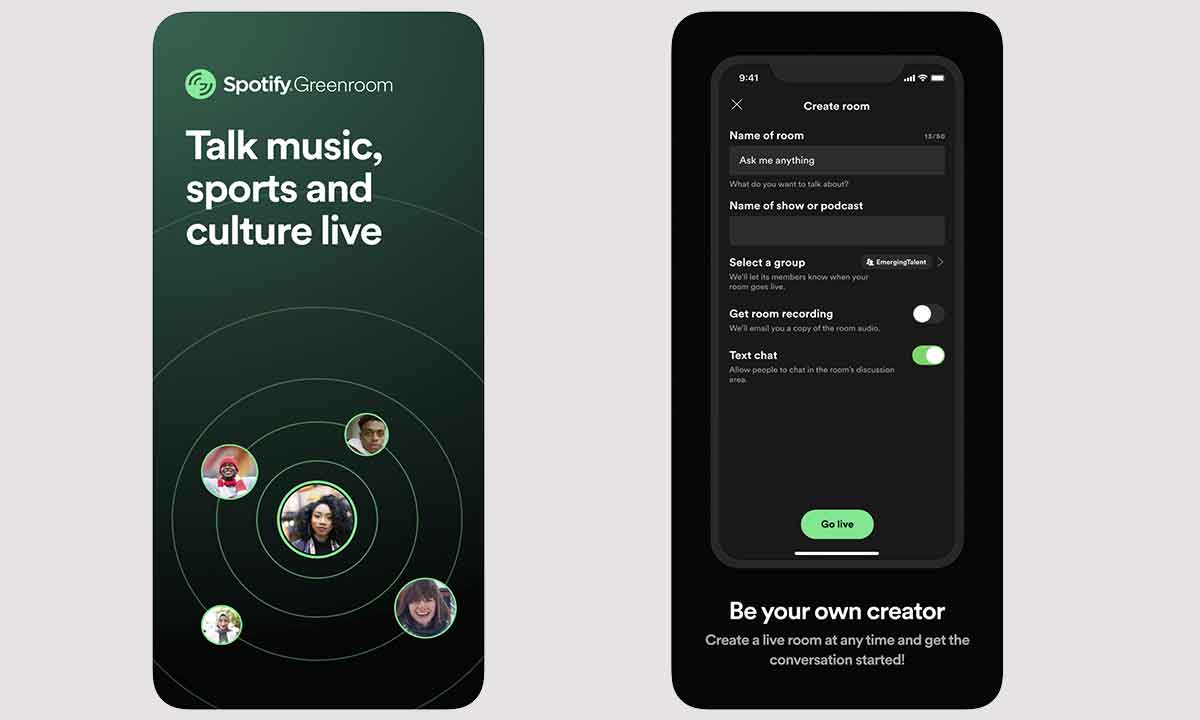
Spotify is one of the many companies that, during the past year, wanted to stand up to Clubhouse. And it is that despite the fact that it does not seem very fashionable now, let us remember that the first half of last year was one of the most commented services and, thanks to its policy of exclusive access through invitations, many people spent a lot of time wishing to be able to access the service. In addition, the participation of some celebrities was the icing on the cake, sparking interest in the service.
Twitter, Facebook, Instagram, Spotify… everyone wanted to respond quickly to the threat Clubhouse posed. The most successful case is, without a doubt, that of the Twitter Spaceswhile others, such as Spotify’s Greenroom, passed unnoticed, and that in some cases, such as Green Room, not only was the service deployed and advertised, but a budget was even established to remunerate certain content on the platform.
Green House, as we told you a few weeks ago, It ceased to be a segregated service, being included and offered from the Spotify apps interface itself. It was striking that, initially, the streaming service had opted for this modality, with which it was even necessary to create a user account, since the credentials were independent of those of Spotify. A strange decision that, as I say, was reversed a few weeks ago.
However, while this might seem like an effort to improve the visibility and performance of the service, today we learn from The Verge that Spotify has eliminated the fund it had established to remunerate creators in the Green Room. Thus, since the fund was announced in June of last year, the initiative has not lasted even a year and, what is worse, as we can read in that article, it has never actually paid a single creator.
Something that catches my attention is that Spotify announced this economic fund in June of last year, coinciding with the steps of Clubhouse to become a fully open platform. doMaybe it was a marketing action to try to attract creators, in the face of the fear that they would massively jump to Clubhouse? This would explain why now, about a year later and with Clubhouse shining much less, the time has come to end the campaign to defend against this “threat”.




